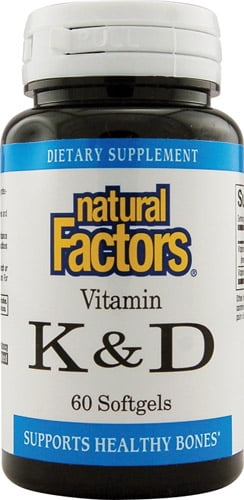

Vitamins are classified into water-soluble and fat-soluble components. The fat-soluble vitamins include vitamins (A, D, E, and K). The majority of previous studies have examined such issues that relates to a specific vitamin or life stage, with the majority merely reporting the effect of either excess or deficiency.

Among these micronutrients are vitamins that are required in small amounts for optimum metabolism, homeostasis, and a healthy lifestyle, acting as coenzymes in several biochemical reactions. The combination of vitamin K and D can significantly increase the total BMD and significantly decrease undercarboxylated osteocalcin, and a more favorable effect is expected when vitamin K2 is used.Age and Gender are vital determinants for the micronutrient demands of normal indviduals.

Simultaneously, subgroup analysis showed that K2 or vitamin K (not specified) supplement was less than 500 μg d-1, which when combined with vitamin D can significantly increase the total BMD compared with the control group fed a normal diet or the group with no treatment (0.479, 0.101 to 0.858 and 0.570, 0.196 to 0.945). A significant decrease in undercarboxylated osteocalcin (-0.945, -1.113 to -0.778) can be observed with the combination of vitamin K and D. Vitamin K combined with vitamin D significantly increased the total bone mineral density (BMD): the pooled effect size was 0.316. Previous studies did not draw a consistent conclusion about the effects of vitamin K combined with vitamin D on human skeletal quality.Ī comprehensive search on Web of Science, PubMed, Embase and the Cochrane Library (from 1950 to February 2020) and bibliographies of relevant articles was undertaken, with the meta-analysis of eight randomized controlled trials (RCTs) including a total of 971 subjects.


 0 kommentar(er)
0 kommentar(er)
